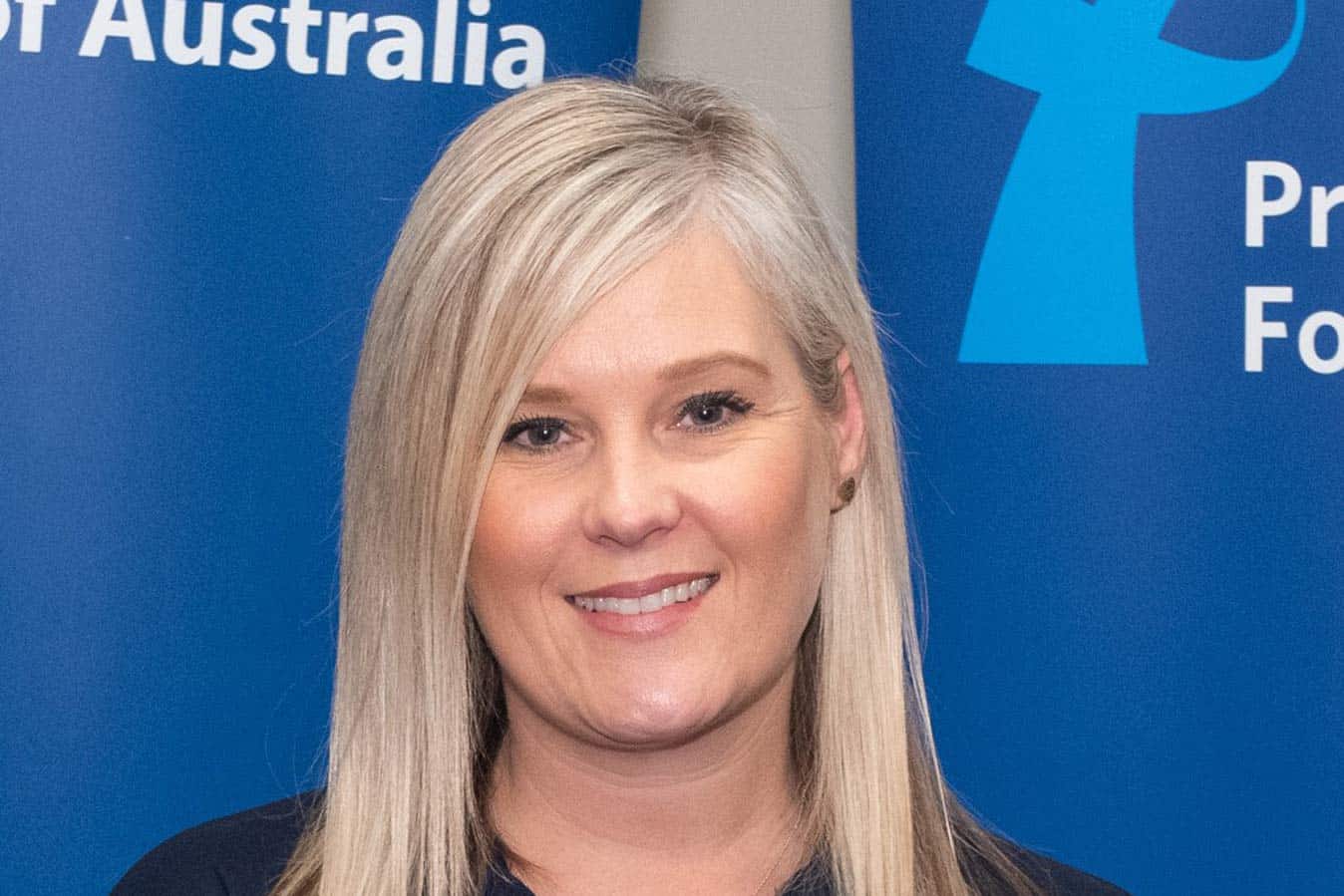When Kerry Santoro, a Prostate Cancer Specialist Nurse, working in the Southern Adelaide Local Health Network (SALHN), encountered her current area of practice, she said it was a logical extension of her longstanding professional interests.
“I’ve always had a particular interest in urology nursing… at the start of my career I worked on a very busy surgical ward which had a lot of urology patients, and we had a number of men that were having radical prostatectomy for prostate cancer treatment,” Kerry explains.
So subsequently, when she commenced at SALHN as an Urology and Continence Nurse, sharing office space with the organisation’s Prostate Cancer Specialist Nurse, she was immediately interested in the promise of the role, learning about its parameters and responsibilities while fulfilling her obligations.
When the incumbent nurse left to fill another vacancy in the organisation, Kerry applied for the role, and more than two-and-a-half years later, the rewards of her current trajectory are clear.
“The thanks that I get from men and their families, for just being that point of contact, for supporting them, for caring for them throughout their pathway is very satisfying for me,” she says.
“They’re [the patients and families] extremely grateful to have that person that they can go to that’s on the other end of the line, that they can just know they can connect with any issues or concerns about anything.”
However, while the role is rewarding, it is also a busy one.
Kerry says that around 200 prostate cancer patients are diagnosed within her local health network each year, and that generally they remain in contact for a period of three years, meaning that at any one time Kerry is managing up to 600 patients on a rolling basis, consulting with 10 to 20 each day.
So what are the roles and responsibilities of the role? What does a normal day look like?
As Kerry describes it, she is the “primary point of contact for men and their families” once a diagnosis of prostate cancer is received. As a result of this, education forms a significant part of the role, with Kerry often outlining both how the disease behaves, the benefits and shortfalls of various treatment options, while also connecting patients with other relevant health services.
Kerry’s role also means that she facilitates involvement with clinical trials and research, keeps abreast of the latest research, and also engages closely with her fellow staff and local support groups for Prostate Cancer by providing information.
As such, on a day-to-day basis, there is often a clear divide of responsibilities, with some days taking on a heavy clinical and patient-facing focus in close consultation with urologists at SALHN, while other days will involve phone consults, the management of other significant projects and “upgrading guidelines and protocols”.
Further to this, there is also an increasing focus on nurse-led clinics that focus on “cancer survivorship”, an area that Kerry describes as part of an “emerging field”, and one that allows her to ensure “continuity of care” while monitoring symptoms and side-effects that may have resulted from cancer treatment.
While Kerry is very satisfied by the role, one which also draws upon skills learned in a Master of Nursing that was completed in 2010, she admits the risk of cancer recurrence, and the responsibility of communicating that to a patient, can sometimes create complex situations.
“When that happens, we see that clinically there is a rise in a blood test, and those men are often being seen in my nurse led clinics, so having a conversation with them around the possibility that they have had a recurrence of their disease can be challenging, and emotionally difficult,” Kerry says.
“It’s good to be that person that’s able to communicate to them that, ‘Okay, it’s alright, we’ll get through this, we’ll work with the next part of the process, we’ll treat this accordingly,’ but emotionally it’s pretty difficult because you’re talking to people about their cancer coming back when they think it’s gone.
“I’m getting better as the years move on, but initially it was really difficult to have those conversations, and how you word those conversations to people.”
Subsequently, Kerry places a high value on communication as key to succeeding as a Prostate Cancer Specialist Nurse, while also noting that, because of the “advanced nursing level” required for the role, that a corresponding level of “autonomy and independence” will also be needed from the nurse.
However, though she stops short of labelling it as a prerequisite, Kerry doesn’t hesitate to recommend the role to those with an interest in oncology or urology nursing, encouraging those interested to look into joining state-based special interest groups in Australia and New Zealand for urological and cancer nursing.
“It’s such a diverse role, and a very rewarding one,” Kerry says.
“The advanced level of the role allows me the autonomy to work independently and provide a nursing service which is efficient and supportive.
“However, I acknowledge that this can’t be achieved without the support from my line managers and also the wonderful doctors, nurses and administration staff who work within the SALHN Urology service.
“On a daily basis I try to have a positive impact on people’s lives who are diagnosed with prostate cancer, but I would not be able to succeed in this without the support of our Urology team.”








